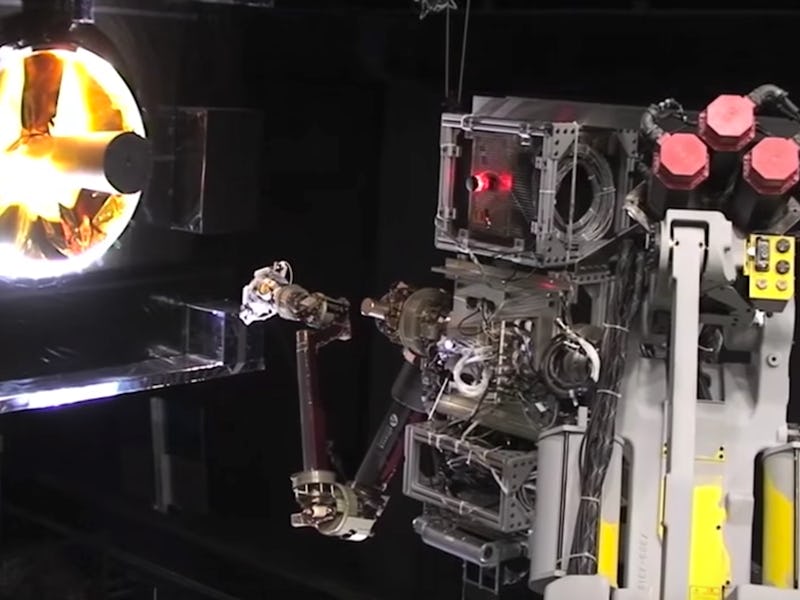There’s a fight brewing 22,000 miles above Earth. The Army’s plan to develop robots to repair satellites might be put on hold, all in the name of free enterprise.
It started on Wednesday when three Republican members of Congress asked the Defense Advanced Research Projects Agency stop its work on Robotic Servicing of Geosynchronous Satellites.
That’s because the Virginia-based Orbital ATK’s Mission Extension Vehicle — which provides life extension services to satellites — is already in development.
Any work being done by a government agency that’s also being done in the private sector would violate this National Space Policy guideline: “Refrain from conducting United States Government space activities that preclude, discourage, or compete with U.S. commercial space activities.”
The trio — Jim Bridenstine of Oklahoma, Barbara Comstock of Virginia, and Rob Bishop of Utah — signed the letter to DARPA director Steven Walker, saying the project could “dramatically disrupt normal market conditions in the emerging in-space satellite servicing sector.”
Bridenstine is reportedly in contention to be the next NASA administrator.
This move doesn’t come out of the blue. The agency may downsize its work in favor of private companies, anyway.
President Donald Trump has embraced space exploration, especially from the private sector after meeting with SpaceX CEO Elon Musk. His campaign proposed possibly decreasing federal spending on space exploration to allow the commercial industry to fill that void.
The Orbital ATK Political Action Committee also has a history of supporting the GOP, likely because of the Republicans’ support for privatization. In 2016, it donated $22,000 to Republican candidates and $1,000 went to Bridenstine. (The PAC also donated $6,000 to Democrats.)
Private companies don’t completely replace government programs though. For example, a company may send up telecommunications satellites, but not NASA satellites that study global weather patterns.
“DARPA’s RSGS program will subsidize a single company with several hundred million dollars worth of space hardware and launch service, courtesy of the U.S. taxpayer, to directly compete with commercial satellite servicing systems that Orbital ATK and other companies are developing with their own private capital,” an Orbital ATK official told Space News.
Meanwhile, a DARPA official said that the RSGS program “aims to transform national security operations in geosynchronous orbit (GEO) and is in full alignment with U.S. national space policy.”
It looks like DARPA does not have plans to stop its RSGS program just yet.
